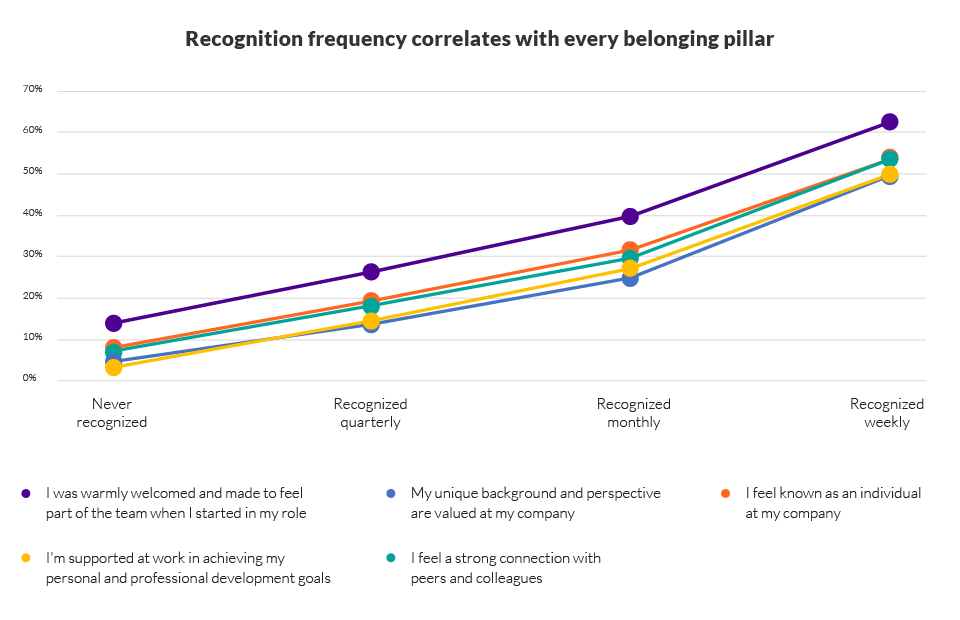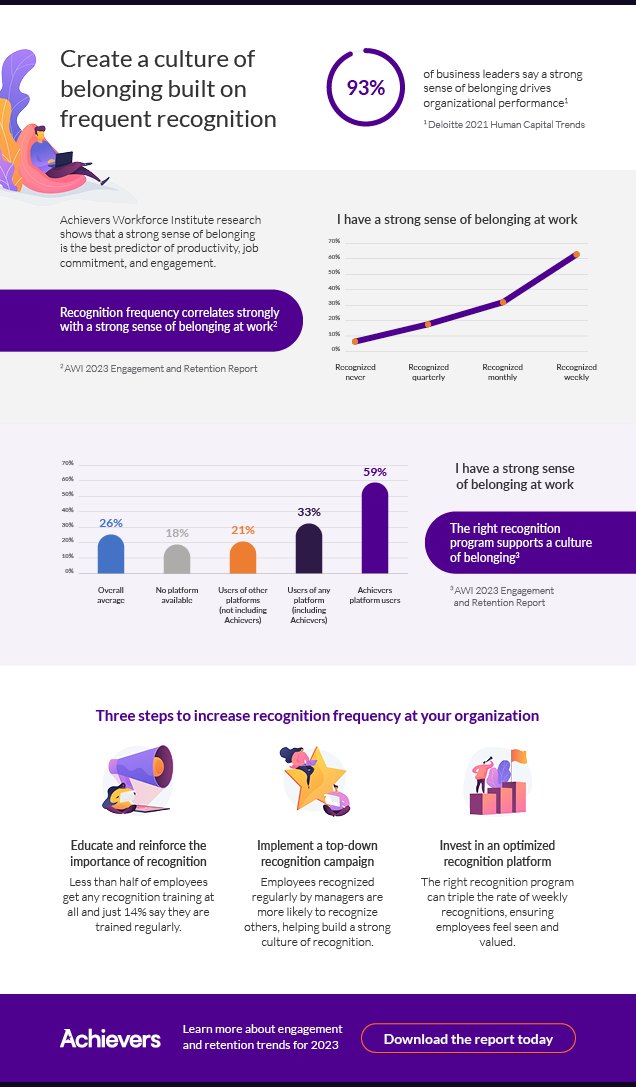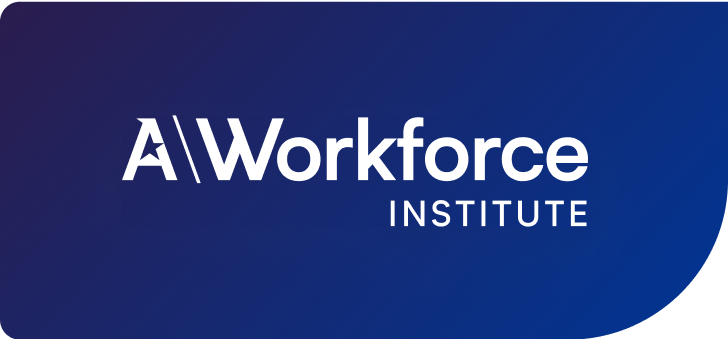The #1 lever to drive belonging at work
Updated on February 7, 2023

This resource is brought to you by:
Topics Covered:
Belonging and DEI
Rewards and recognition
93% of business leaders agree that a strong sense of belonging at work boosts organizational performance. With this widespread recognition, the question is clear: How can organizations create an environment where employees feel truly connected and valued? The answer: recognition.
The connection between belonging and recognition
When recognition happens regularly, employees feel more connected to their work and their teams. The key is consistency; recognizing employees often strengthens their sense of belonging, which leads to better engagement, higher retention, and stronger business outcomes.

By improving recognition frequency in your organization, you’re not just celebrating good work — you’re building a culture where people feel seen, supported, and motivated to do their best. And that’s what drives real success.
Recognition and belonging: Pillars for success
A strong sense of belonging at work can make all the difference. The Achievers Workforce Institute’s Belonging Blueprint highlights five key pillars that help create this feeling: Welcomed, Known, Included, Supported, and Connected. When employees experience these pillars, they’re more likely to be engaged, productive, and loyal.
And guess what? Recognition is one of the best ways to reinforce each of these pillars. Here’s how:
- Welcomed: A personalized welcome card shows new hires they’re valued from day one.
- Known: Recognition that aligns with personal values makes employees feel understood and appreciated.
- Included: Celebrating diverse perspectives fosters a culture of true inclusion.
- Supported: Recognizing both effort and outcomes makes employees feel backed and motivated.
- Connected: Cross-team recognition strengthens bonds and creates a stronger, more connected workforce.
Ready to take the next step? Download our infographic for actionable tips on increasing recognition frequency and boosting employee belonging.
Download the full resource below

Download the full resource

Join our mailing list
Stay up to date with the latest in workforce science from Achievers Workforce Institute.
